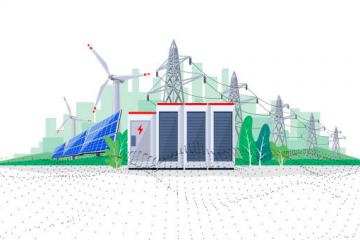In the utilities and energy management world, the focus on environmental sustainability is stronger than ever. Yet, despite their best intentions, many energy providers find that their sustainability messages aren’t connecting with customers. This disconnect arises because, while people value sustainability in theory, their day-to-day priorities are driven by tangible benefits such as saving money and simplifying their lives.
NODE, an advanced AI-IoT energy management system, is revolutionizing this conversation by addressing both environmental concerns and users’ needs.
Traditional environmental messaging often struggles to engage customers because it focuses on the big picture—global carbon reduction or saving the planet—without tying it to personal impact. Many customers feel overwhelmed or disengaged when presented with these broad appeals, particularly when the connection to their daily lives isn’t clear. The reality is that most people are motivated by concrete incentives, like lower energy bills or easier-to-understand solutions to manage their energy consumption.
NODE bridges gap between a user and environmental warning by showing users how sustainable energy practices can lead to real, measurable benefits in their lives.
Take Time-of-Use (TOU) pricing as an example. Programs like TOU, which adjust energy costs based on the time of day, have tremendous potential to save customers money while reducing strain on the grid. Yet, these programs are often underutilized because customers don’t fully understand how they work. NODE’s AI-driven analytics simplify this complexity, providing real-time energy insights that empower users to optimize their energy consumption. Instead of relying on vague concepts, NODE shows users exactly when they can shift their energy use to save money, whether by scheduling appliance use during off-peak hours or charging energy storage systems when electricity rates are lower.
NODE doesn’t stop in providing insights; it creates a seamless experience for integrating renewable energy sources like solar and wind. By balancing energy production and consumption in real time, NODE makes it easier for users to adopt clean energy solutions without disrupting their routines. Industrial users, for instance, can utilize NODE to adjust machine schedules for peak efficiency, while residential users can effortlessly manage their home energy systems. This kind of precision ensures that sustainability efforts translate into practical, everyday actions.
Another area where NODE excels is ongoing engagement. Many sustainability efforts falter after the initial outreach, leaving customers without the support needed to maintain their habits. NODE solves this by offering continuous updates, personalized alerts, and intuitive dashboards. Customers are kept informed and empowered, building trust in the system while reinforcing sustainable practices. Instead of seeing energy management as a chore, NODE users become active participants in shaping a sustainable future.
The results speak for themselves. Customers using NODE report significant savings on their energy bills, alongside a greater sense of control over their energy usage. Industries adopting NODE have achieved higher utilization of renewable energy sources, reduced waste, and optimized operational costs. Most importantly, NODE has succeeded where traditional messaging often fails: creating a direct connection between sustainability and personal benefit.
In an era where customers demand both practicality and purpose, NODE is rewriting the rules of energy management. It makes sustainability simple, actionable, and rewarding. By aligning environmental goals with financial incentives and continuous engagement, NODE isn’t just helping users reduce their energy costs—it’s empowering them to drive meaningful change.





